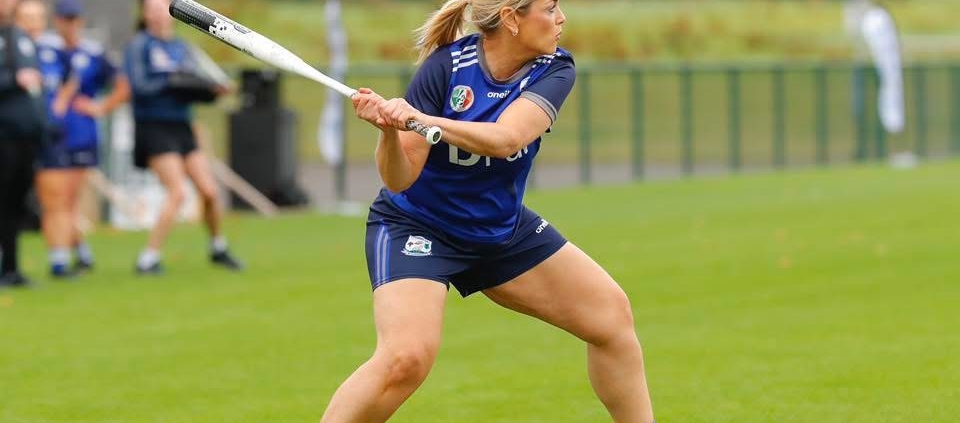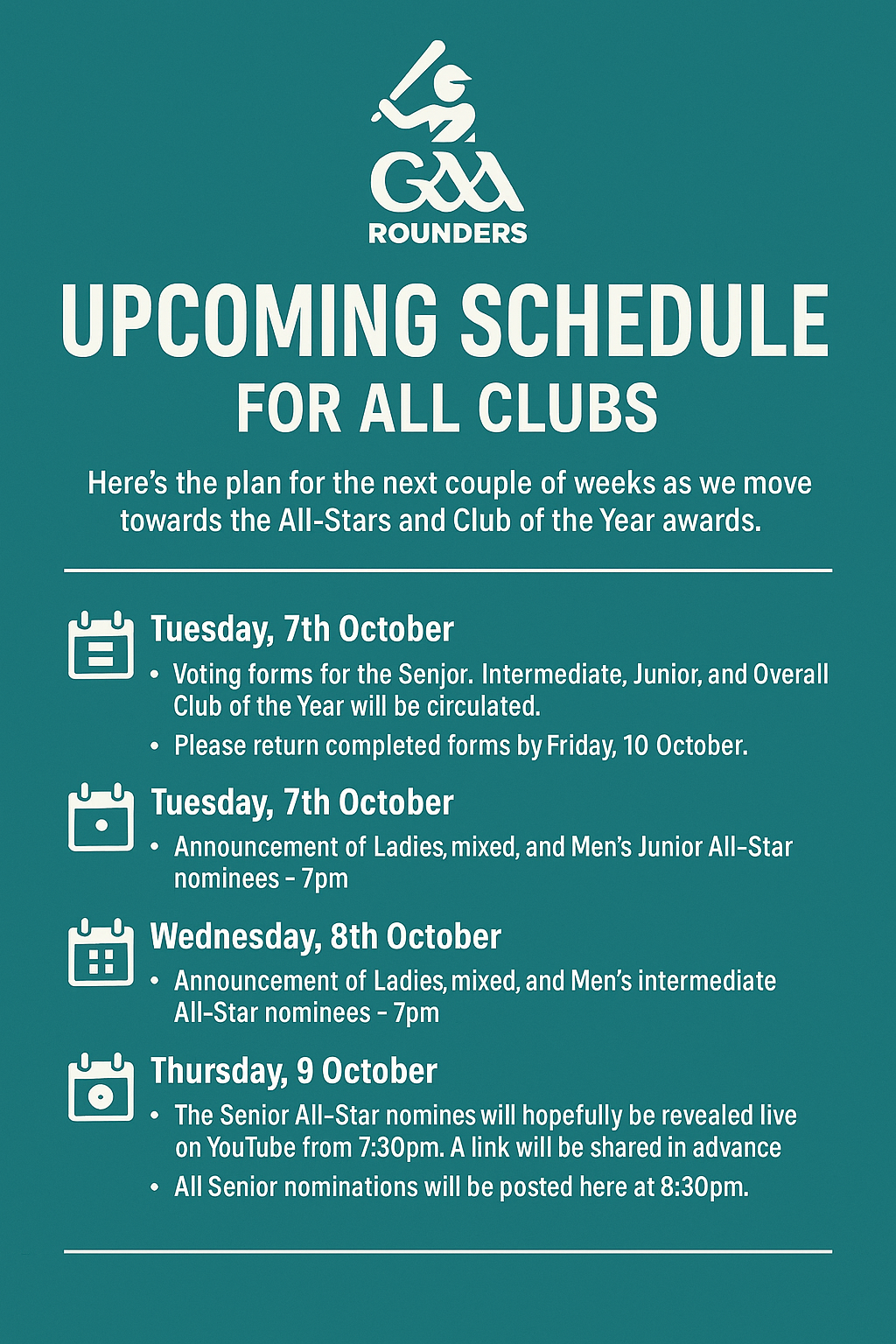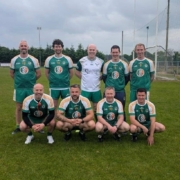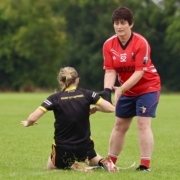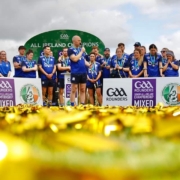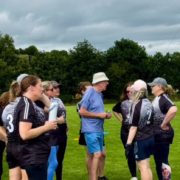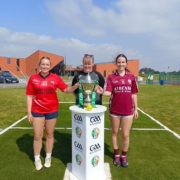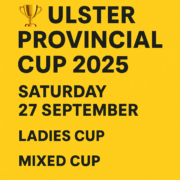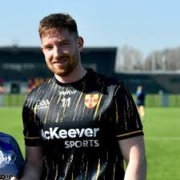Paula Doherty – Candidate for President of GAA Rounders
A Chat with Paula Doherty — Candidate for President of GAA Rounders
As we build towards the 2025 GAA Rounders AGM, we’re sitting down with each of the candidates for President to give clubs and members a clearer sense of the people behind the names. These pieces aren’t pitches — just conversations. A chance to let the candidates speak in their own words about what brought them to this point.
We start this week with Paula Doherty, someone widely known across the Rounders community for her years as a player, volunteer and administrator. Paula speaks openly, honestly, and with an obvious grá for the sport. Next week, we’ll publish our conversation with Michael Sheahan, following the very same format.
⸻
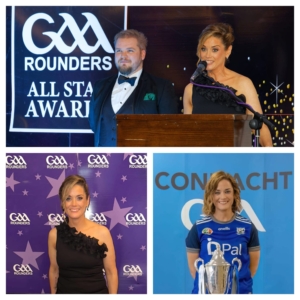
Rounders was always my thing.
Paula’s Rounders journey starts long before county titles and committee meetings. It starts in 5th class in Castlebar, where her teacher, Mrs Mary Golden, heavily involved with Castlebar Rounders, encouraged her students to try the sport.
“That’s where the grá started,” Paula says. “I played underage with Castlebar for a number of years. It was the perfect social outlet — evenings and weekends with friends, and great fun.”
Years later, life pulled her away from the sport for a while. But she eventually returned — and for reasons a lot of adults will recognise.
“Rounders redefined who I was outside of work and family life.”
It’s the kind of sentence people only say when they genuinely mean it — not because they’re trying to sound polished.
“Rounders was my thing — something I chose to return to,” she says.
⸻
Coming back, finding her place again
Paula speaks proudly about being the oldest female player on Breaffy’s All-Ireland winning team last year.
“You’re never too old to go back to sport,” she says. “It proves that age is just a number. There’s still plenty of time to play, contribute, and enjoy it.”
Volunteering, she adds, taught her some of the biggest lessons she has learned in Rounders.
“It’s taught me patience and resilience. But the biggest lesson is recognising volunteers and the significant contribution they make. So often people’s work is assumed or taken for granted. Volunteers are the backbone of this sport.”
Every volunteer reading this will be nodding in full agreement.
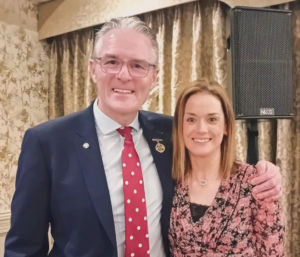
⸻
On All-Ireland titles and the unseen stuff behind them
Her first All-Ireland win at adult level stays with her.
“It’s very hard to put into words. It’s a great moment of recognition, but more importantly it’s a team thing — going out as a group of women and working so closely together.”
Her All-Star was equally meaningful.
“It validated the time spent at training, the bumps and bruises, the visits to A&E, the long road trips, and the time away from home and the kids. It is always special to be recognised for something you’ve invested time in.”
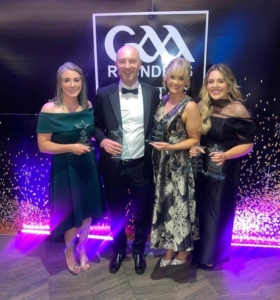
But the matches that shaped her most weren’t the finals.
“It’s the games where players are out of their normal positions, out of their comfort zones, and you scrape a win. Those games helped me recognise the power of teamwork. Being asked to play somewhere different is daunting — but that’s where you learn.”
⸻
Why she’s putting her name forward
“Anyone that knows me knows how passionate I am about the game,” Paula says when asked why she’s running for President.
“I strongly believe I can make a significant difference. Members need a strong voice who can advocate on their behalf in a fair and transparent way.”
She doesn’t hide from the realities of the role.
“Taking on leadership is daunting, but I’m motivated by the challenge and the responsibility. I feel I can accomplish something meaningful.”
Her professional background plays a big part in how she sees the presidency.
“I’ve worked in education for 23 years — teaching, lecturing, and now as a programme director in ATU St Angela’s. Communication, organisation, and adaptability are crucial. Planning and time management too. These are areas I can bring to the organisation.”
She also addresses her decision to step away from the role of National Secretary previously.
“It wasn’t taken lightly. Feeling supported is crucial. Everyone — players, clubs, volunteers — deserves to feel supported and valued.”
⸻
Three questions everyone keeps asking
At this point, I ask her directly about the things people have been wondering since she put her name forward.
“Paula, the same questions seem to come up every time your name is mentioned. So let’s go through them properly.”
Q: Will you stay on the Breaffy board if elected President?
“No — if I’m elected, I’ll be stepping down from the Breaffy board immediately. It’s a very tough decision, but I feel the President needs to be fully separate from club governance. You can’t ask the organisation to trust your judgement if you’re still tied to a club board.”
Q: And refereeing — will you still ref games?
“If we’re badly stuck for a ref, I’ll always help out if I can — I’ll never leave people stuck. But I won’t be putting my name down to referee matches. The President needs to stay a step removed from anything that could lead to pressure or perception issues.”
Q: What about playing — will you continue?
“That’s the hardest one. We’re going for five in a row, and I do feel I’ve a few more years left in me. But the role of President needs to be above reproach. It’s a demanding role even without playing. I’ll stop playing if I get the role”
She answers all three without hesitation — and it’s clear she has thought deeply about each one.
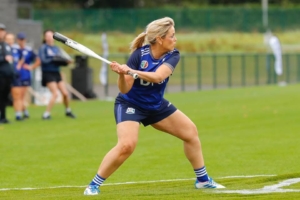
⸻
*Governance, structure and where development is needed*
When the conversation turns to governance, Paula doesn’t hesitate. She knows exactly where she feels the association needs strengthening.
“Transparency and accountability are huge for me,” she says. “People want to know how decisions are made, why they’re made, and who’s making them. Openness has to be at the centre of everything.”
Refereeing is another area she returns to more than once.
“We need more support for referees — simple as that. More training, more structure, more consistency. The amount of games being played now means the system has to catch up.”
She also talks about the digital side of things — the part every club secretary wishes would magically sort itself.
“Our fixtures and admin systems are improving, but there’s still work to do. Making things easier for clubs and volunteers has to be a priority.”
Coaching structures come next — something she clearly cares about.
“We need proper pathways. Not just for players, but for coaches too. Clubs want guidance, and a clear structure makes such a difference.”
And then there’s GAA integration.
“Integration is coming, and we need to be properly represented. Rounders has its own identity, culture and values, and they need to be protected and understood within the wider GAA.”
“We need to see where we can improve financially, be it through Sponsorship or grants, because the more clubs that join the bigger the workload and expenses”
⸻
The role of community and her family
Paula quickly credits her family — Sarah, Liam and Paul — as the people who make her involvement possible.
“Without their support, understanding and patience, I wouldn’t be able to dedicate the time I have.”
Of the wider Rounders community, her admiration is obvious.
“Everyone shares one thing in common — the love of the game. The enthusiasm you see on the sideline, in training, and during matches is unbelievable. The commitment from players and volunteers is unrivalled.”
She believes volunteers should be supported more directly.
“Training and workshops are essential. Clear communication. Regular updates. And ensuring volunteers are key stakeholders in decision-making.”
Recognition also matters:
“Spotlighting volunteers on social media or the website, recognising milestones — it’s important.”
⸻
Growth opportunities and the challenges still there
Paula sees a major opportunity for Rounders in expanding visibility, identity and digital engagement.
She also speaks frankly about challenges.
“One challenge Rounders hasn’t always handled well is volunteer recruitment and retention. Structured training and support is vital for both.”
Player pathways also matter to her.
“When we’re in a position to support it, players should have opportunities to move from club to regional or national representation. That would really encourage ambition.”
She also highlights the need to support clubs from Junior through Senior to keep competitions balanced.
“We have a huge amount of junior clubs and they need the support to move up the grades. “
⸻
Referees and the long-term vision for development
Paula outlines a structured approach to refereeing:
“We need more qualified referees. We need accessible training, clear progression pathways, and continuous development. We need to identify the number of referees recruited annually, track training completion rates, and examine retention year on year.”
She also supports regional development officers as a long-term goal.
“Part-time regional roles, funded through grants or partnerships, are realistic starting points. Development officers can link schools and clubs, support volunteers, and bring consistency.”
⸻
Communication and leadership
When the conversation turns to communication, Paula laughs softly — the kind of laugh that says, “Yes, this needs work.”
“Look, communication has to improve,” she says. “People want clarity. They want updates. They want to understand decisions, not hear them second-hand.”
She talks about simple but important changes:
“We can make use of the new website. We can send updates more regularly — even every month or every two months. And we need to open up proper feedback channels so clubs feel heard.”
One thing she’s very clear on is the need for clear points of contact around the country.
“Clubs should always know exactly who to go to. There shouldn’t be uncertainty or mixed messages.”
And when I ask her what values would guide her leadership, she doesn’t hesitate:
“Fairness, respect, accountability, transparency. If you don’t have those, you have nothing.”
⸻
Looking ahead
When asked what she hopes people might say three years from now if she becomes President, Paula answers simply:
“That communication improved, decisions were clearer, and the organisation felt more connected and inclusive. And that Rounders had a bigger presence — and that I was part of making that happen.”
It’s a grounded answer — the kind she gave throughout.

